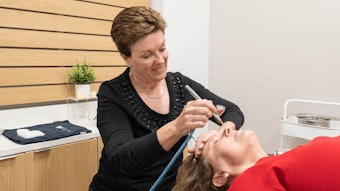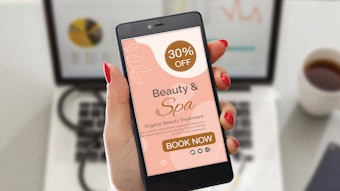
Finding a job can be stressful, but there are some steps that can be taken to ensure you find the opportunity that best fits your needs and personality. First and foremost, you need to take it seriously. Finding a job is a job in itself. You need to be motivated to go out and locate the position you are seeking. Everyone chooses their own future, and when people are passionate about what they do, chances are, they will succeed.
There are many positions other than working in a spa that are available for estheticians, so take the time to find out which type of job would be best for you. People trained as estheticians can become product representatives, educators, coordinators, managers, assistants in medical offices, marketers for skin care companies and product development specialists, just to name a few. Make sure that the type of job you pursue is one you like, is rewarding, and keeps you motivated and interested. If you choose a job merely based on compensation, it probably will not provide you with a sense of fulfillment.
Research the job
After deciding where you want to take your career, it is important to conduct some research and find out exactly what that type of job entails. Be aware of the amount and nature of the responsibility you will be taking on, as well as the average working hours and whether any additional education would be required. Once you decide where to take your career, start looking into some potential employers.
For example, if you want to work in a medical office, take your time to find out about the physician, the practice, the treatments offered and the business’ commitment to its esthetic practice. Search the Internet for information about the business, or call the office and ask questions to get a feel for it. Offering your time for an internship is also a great way to see first-hand how a particular place of business is managed, and also is a great opportunity to showcase your skills and abilities.
Building a résumé
The next step is getting in the door. Building a great résumé is essential to getting an interview because it acts as your first impression; therefore, it must be as perfect as possible. Read and re-read your résumé and ask as many people as possible to do the same. Look for spelling, grammar and consistency errors because one small mistake can discredit you. Keep it to one page in length, if possible; you want your experiences and education to stand out. Once the employer sees that you are qualified, you can go into detailed specifics during the interview.
The overall appearance of your résumé should be clean and consistent. Pictures, scented paper or bright colors are not appropriate because it is important that you come across as a professional. Your name, e-mail address, phone number and physical address should be at the very top—be sure to use a professional e-mail, not something like [email protected].
A two-to-three sentence professional summary that states your skills and what you can bring to the table should be placed after the contact information. If you are looking for a job in the medical field, ensure that anything that shows medical education or experience is highlighted.
Experience should come after the professional summary, unless you are newly graduated. List three to four jobs, and make sure you include those that most pertain to the position for which you are applying. Jobs should be listed in reverse-chronological order, which means the first on the list would be your current job. This would be followed by education details, such as the school you attended, year you graduated and degree you obtained, also listed in reverse-chronological order.
The interview
Once the employer reviews your résumé, an interview may be scheduled. When having an interview, it is important to look your best. Wear a suit and make sure your hair and makeup are done, but not overdone, and be prepared to answer questions.
Before you go into the interview, write down and review your assets, and why you would be a benefit to the practice or spa. The worst thing you can do is not be prepared. Most likely, the interviewers will ask about your qualities, as well as what you can offer to the business, what your experience has been and why you would be an good choice. Spend time thinking about how you would answer common interview questions, such as “Tell me a little bit about yourself?” and “Why you are a good candidate for this position?” You want to sound polished but not rehearsed.
You may also be asked why you left former jobs, why you want to work for that particular spa and whether you are aware of the history of that business. Know your résumé inside and out, and be prepared with factual stories in order to reinforce what is listed on your résumé. Ask someone to do a mock interview with you, or practice responses in front of a mirror. You may feel silly, but you will be better prepared for an actual interview if you do this.
At the end of the interview, when asked if you have any questions, say yes. Try to think of at least one or two questions that you can ask, which will make you seem interested. Questions may include “What qualities are you looking for in an employee?” or “Is there room for growth in this position?” Before you leave the interview, inquire about the time line for filling the position, and find out when you should expect to hear back.
Send a personalized, handwritten thank-you note that day. An alternative to this would be to e-mail a thank-you note. Do not bring up rate of compensation, benefits or time off during an interview—save these questions for when you are offered a position. However, you should be prepared to answer questions about these things if the interviewer asks them.
Be professional
It can be difficult to find a great job, but preparation will pay off. Remember, it is crucial to come across as a professional at all times. Exude confidence and keep trying until you have succeeded.










